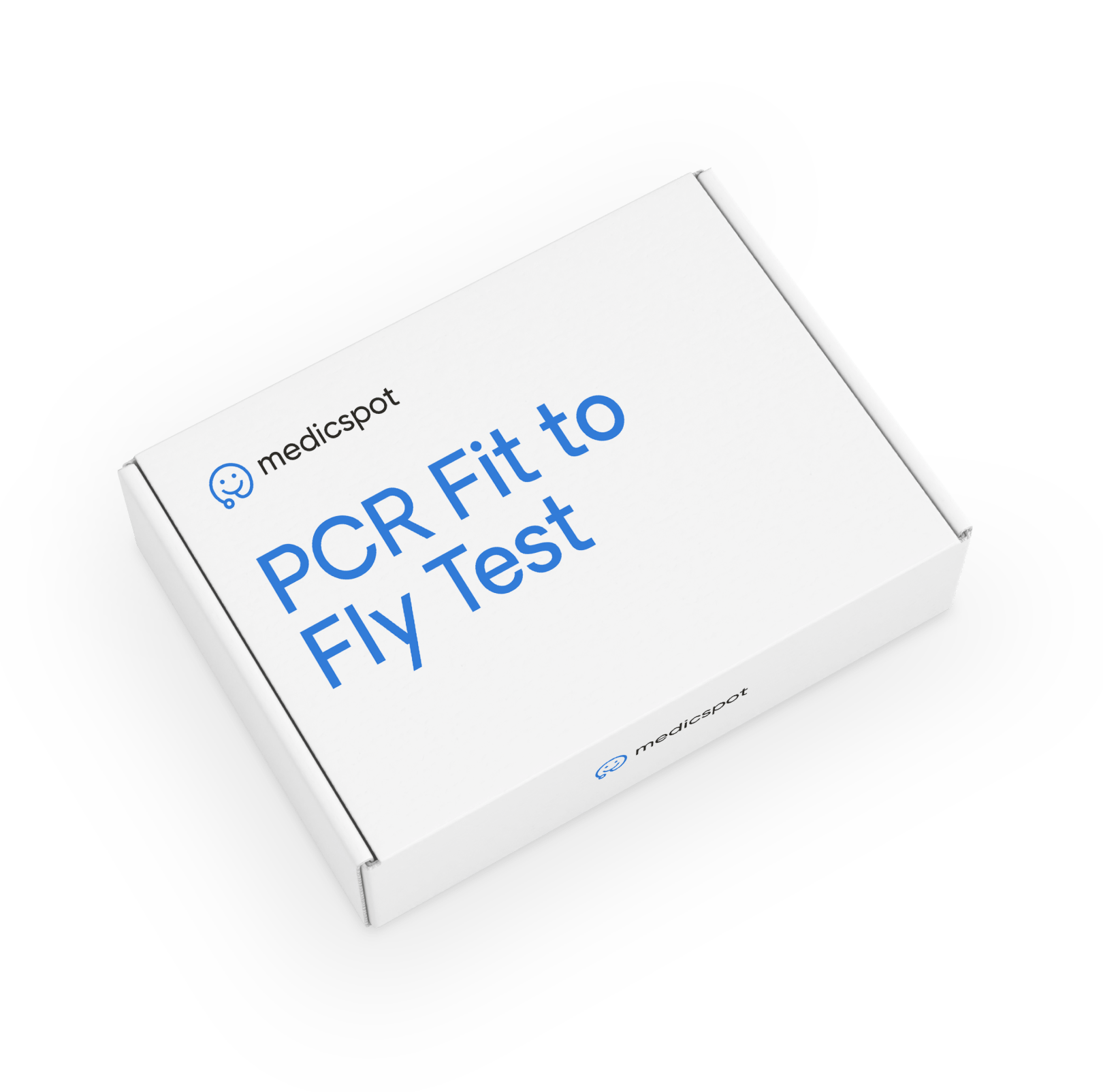Covid 19 Test Kit
PCR Fit to Fly Test
£49.99
1
Out of stockIf you’re travelling abroad, some countries require proof of negative PCR test results. Our Fit to Fly PCR test includes free delivery, free express return to the lab, and a doctor-signed Fit to Fly Certificate if your test is negative. Results are provided within 72h of receipt at our UKAS approved laboratory.
UKAS approved laboratories
Free Delivery & Sample Return
Includes Fit to Fly Certificate
Results within 72h of sample receipt
CQC Regulated
Rated "Excellent" by our customers
How our PCR tests work
Step 1
Order your tests online
Order before 2pm on Monday-Friday and we'll dispatch your test kit on the same day — with free delivery and return labels.
Step 2
Self-test at home
Register your kit, use the gentle and non-invasive self-test at home and then send each swab sample to our lab using a prepaid label.
Step 3
Receive your results fast
You’ll receive your test result by email after our lab receives your sample, complete with a doctor-signed certificate.
